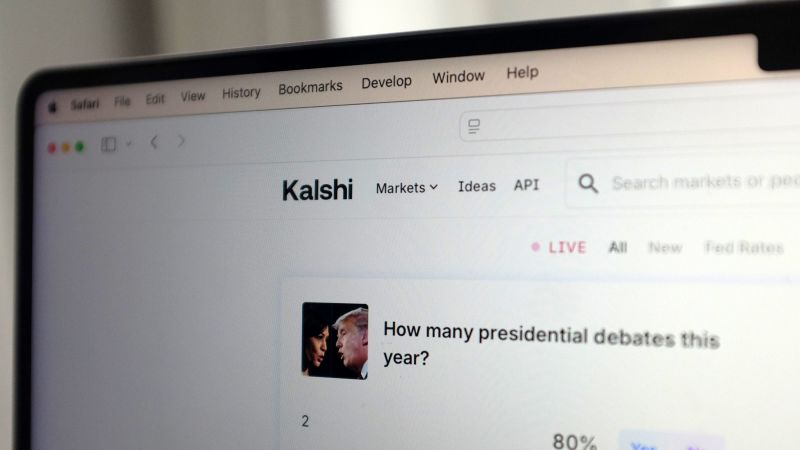A federal appeals court in Washington, DC, upheld a ruling that allowed Kalshi, an online platform that offers prediction market betting on election outcomes, to continue operating. The ruling denied a government watchdog’s request to halt the decision, allowing Americans to bet on which party will control the House and Senate in 2025. The judges found that the Commodity Futures Trading Commission failed to demonstrate how the wagers would harm the integrity of elections while the appeal is ongoing. The decision opens the possibility for the agency to seek a temporary halt in the future, should new evidence of harm emerge.
Despite initial legal challenges from the CFTC, Kalshi relaunched its congressional control contracts after the court ruling, allowing users to place bets on political outcomes. The platform believes that these contracts serve a public interest by providing accurate data for election forecasting and allowing individuals to hedge their bets on different outcomes. Kalshi has pointed to the popularity of offshore prediction markets like Polymarket as evidence of the demand for these types of platforms. The CFTC has expressed concerns that political betting markets may be susceptible to manipulation due to the sources of information they rely on, such as polls with undisclosed methodologies or fake news reports.
The ruling in favor of Kalshi has sparked debate about election integrity and the potential impact of prediction markets on the democratic process. Proponents of the platform argue that it offers a valuable tool for individuals to hedge risks related to election outcomes and provides valuable data for forecasting. However, critics, including legal experts and advocacy organizations, have expressed concerns about the risks of manipulation and the potential for harm to election integrity. While the legal dispute continues, the CFTC has proposed a rule that would explicitly ban contracts on the outcomes of elections, awards shows, and sports, among other events, as part of a broader clampdown on events-based betting.
The court’s decision to allow Kalshi to operate its election betting platform represents a milestone in the debate over the legality and implications of prediction markets in the United States. The ruling comes after a contentious legal battle between the platform and the CFTC, which argued that the wagers posed a threat to the integrity of elections. Kalshi’s co-founders have hailed the decision as a victory for the platform and for the legality of presidential election markets in the US. The court’s order has prompted concerns about the potential consequences of opening up elections to betting markets, particularly in an age of misinformation and manipulation.
The case highlights the complexities of regulating prediction markets and their potential impact on important societal issues like election integrity. Both supporters and critics of platforms like Kalshi make compelling arguments about their benefits and risks. As the legal dispute continues and the broader debate over events-based betting evolves, it will be crucial for regulators, policymakers, and the public to engage in thoughtful discussions about how to balance innovation and consumer choice with the protection of democratic processes. Regardless of the outcome, the case of Kalshi and the CFTC represents a pivotal moment in the ongoing conversation about the future of prediction markets and their role in shaping the political landscape.













